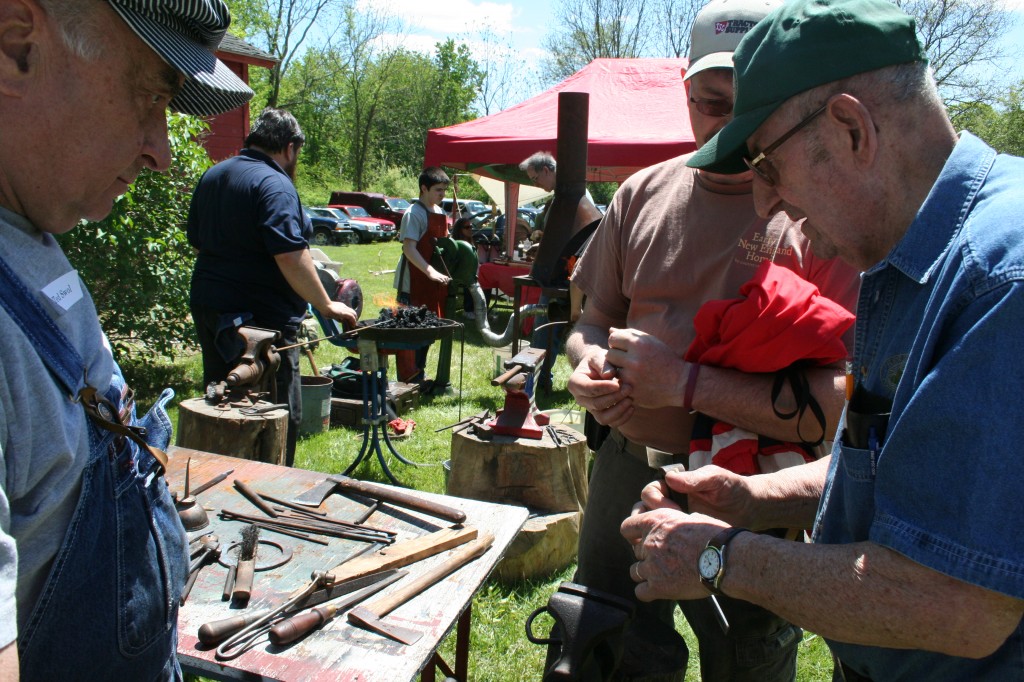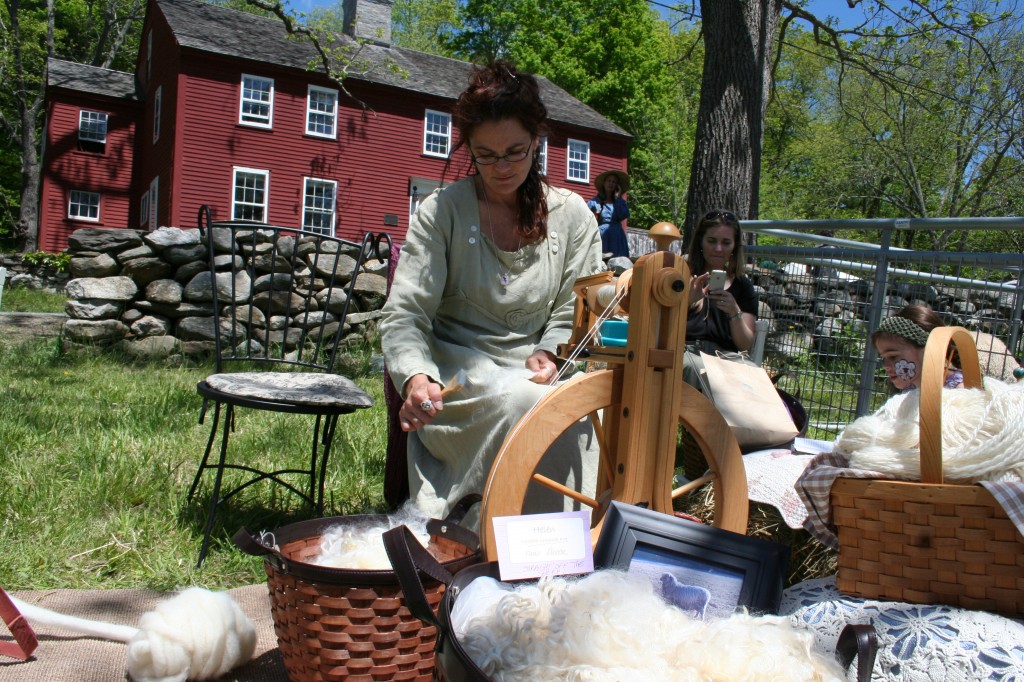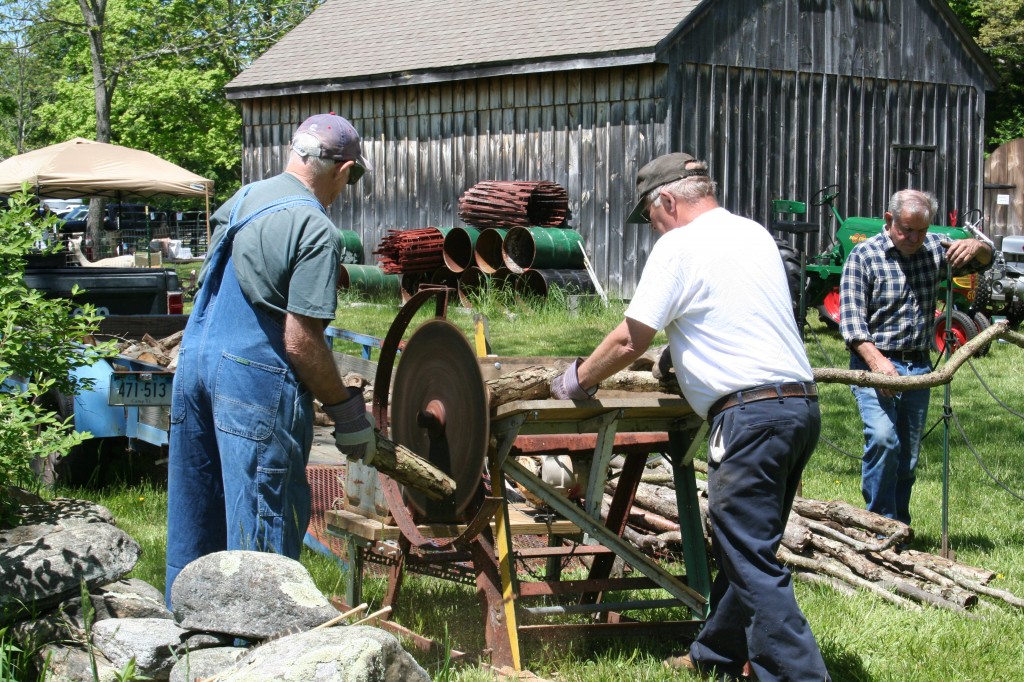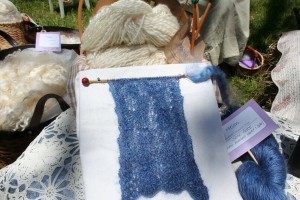Timeless Country Skills At The Waldo Farm

At the Waldo Farm in Scotland, it was like coming home to sheep, spinning, blacksmiths, one lungers powering wood saws plus tractors, stone walls and black walnut trees – and the wonderful people who celebrate life and perform artisan skills.
Ted Swol, blacksmith, for instance, can recall attending a one-room schoolhouse in Columbia for the first three years of his education. Listening to stories of an older generation recalling adventures out West, mule trains, encounters with Indians. One old-timer spent a winter on the ice in the middle of the Mississippi.
“I wished I had their stories written down now,” he said as he hammered red-hot metal into shape. He explained the art of knife making and how to hone a blade to razor sharpness and smiled when he explained that a hachet-like tool he made was a new implement, just aged to look “barn fresh.” Visitors and longtime friends stopped by to examine his work and swap stories.

Nearby, “Helen,” a registered Leicester Longwool ewe, kept her owner Keri Boucher of Iris Creek Farm company. Boucher tends her flock and spins the resulting fiber into yarn.
She was spinning Helen's lustrous wool on a Schacht spinning wheel at the recent Farm Days held at the Waldo Farm. (Helen was recently shorn – nearby baskets brimmed with the resulting luminous fleece for which the the breed is noted.)
“There are some 750 of this breed in the United States,” she explained as she combed the fiber to ready it for spinning. “They are easy keepers.”
A lacy blue knitted-up sample demonstrated how the trimmings (usually thrown out) from skirted wool could be reworked into a thing of beauty.
The American Livestock Breeds Conservancy (ALBC) is a nonprofit membership organization working to protect more than 150 breeds of livestock and poultry from extinction, including cattle, goats, horses, asses, sheep, pigs, rabbits, chickens, ducks, geese, and turkeys.
Founded in 1977, the organization works to “conserve historic breeds and genetic diversity in livestock.”
Colonial Williamsburg is another place to see Leicester Longwools. But if you want to see a demonstration by Boucher, she attends the annual Celebrating Agriculture event, set for Saturday, September 25, 2010 at the Woodstock Fairgrounds, Rte. 169, Woodstock, Connecticut.
The Edward Waldo House was built circa 1715 and the farm was owned by the same family for seven generations.
From the historical society brochure about the farm: “The pine-paneled buttery housed the wheels of cheese, which were taken by ox-cart to the Norwich harbor for sale to the whaling vessels, Flax for linen and wool from the sheep provided the basis for the family clothing. Eggs, strawberries and other crops were raised for the family use as well as cash crops, according to the journals kept.”

 Leslie Newman of the Scotland Historical Society wielded a rolling pin to shape up pastry dough into an apple pie in the kitchen of the farmhouse. The open hearth cooking demonstrations, butter churning, music and more went on all day.
Leslie Newman of the Scotland Historical Society wielded a rolling pin to shape up pastry dough into an apple pie in the kitchen of the farmhouse. The open hearth cooking demonstrations, butter churning, music and more went on all day.

